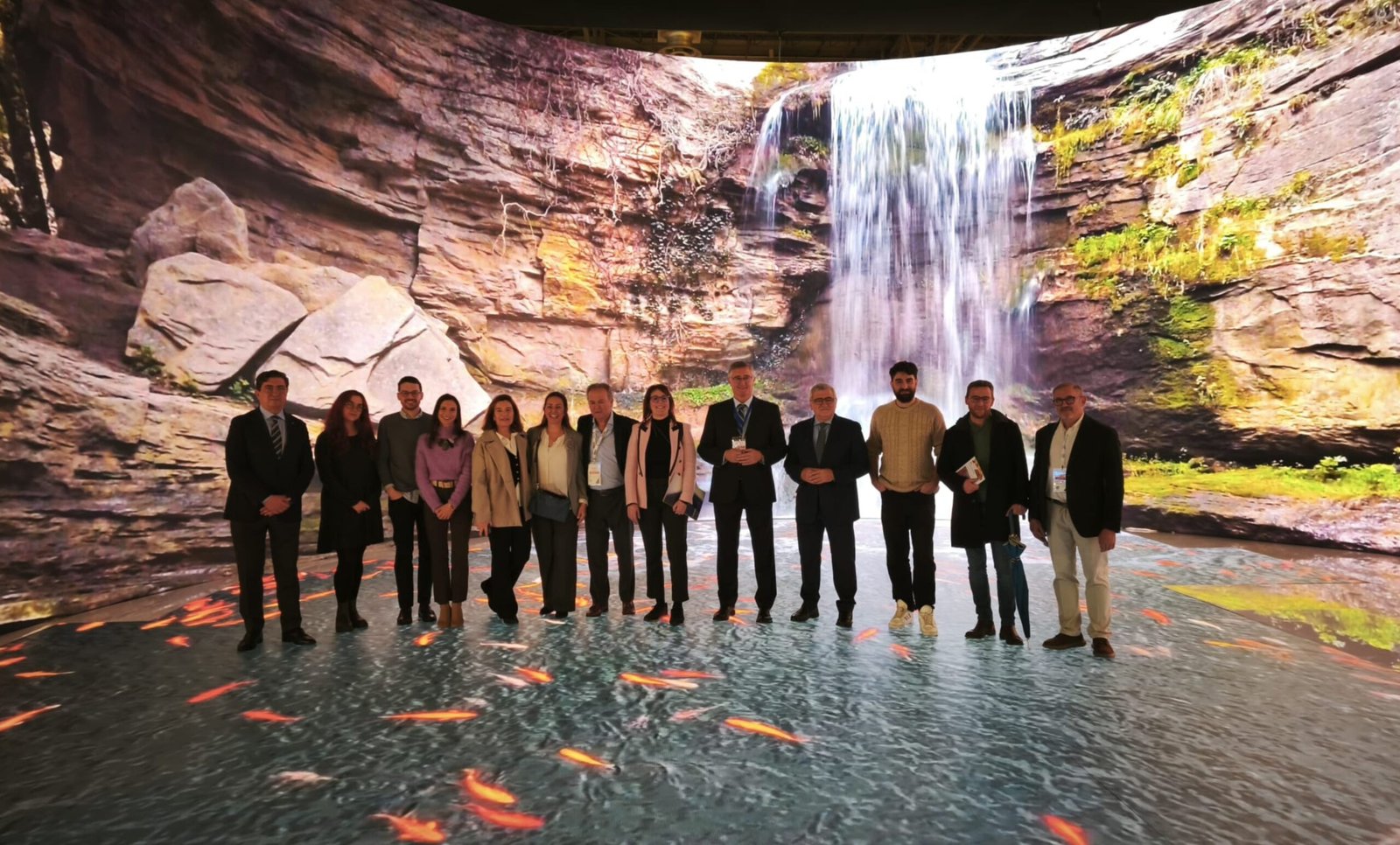- This aid package was presented today at a public event
- The highest representatives of the Government of Aragon, the provincial councils of Zaragoza, Huesca and Teruel, CEOE Aragón, CEHTA and FAMP participated in the signing.
(Zaragoza- 03/30/21). The Government of Aragon presented this morning , in a public event held at its regional headquarters, a specific aid plan for the hospitality and tourism sector valued at 50 million euros . The event has been supported by the president of the Government of Aragon, the vice president of the Provincial Council of Zaragoza, the presidents of the provincial councils of Huesca and Teruel, the president of CEOE Aragón, the president of the Aragonese Federation of Municipalities, Provinces and Regions (FAMP) and the president of the Confederation of Hospitality and Tourism Entrepreneurs of Aragon (CEHTA). The presidents of the Provincial Federations and Associations of Hospitality and Tourism of Zaragoza and Huesca also attended the event. Teruel has excused his attendance.
This is a long-awaited plan for the sector that has suffered the greatest consequences caused by the COVID-19 pandemic. An activity that has suffered consequences “never seen in an economic sector in times of peace”, according to the study by the University of Zaragoza for the Council of Chambers of Aragon under the title “Hospitality and COVID-19”. The impact on the Aragonese sector, at this time and in terms of lost profits and fixed costs, is valued at a total of 260 million euros, and the percentage of professionals in a situation of unemployment or ERTE amounts to 49%. For all these reasons, the hospitality sector considers that this plan is insufficient.
However, in the words of the president of CEHTA, Luis Vaquer , this aid is “very welcome by the sector.” According to the president of the Aragonese hospitality association, the regional administration «is making an important effort», although this aid «will not be able to respond to the losses caused.» Vaquer also highlighted the need for this line “to be compatible with other aid that comes from other administrations,” as well as the importance that “it can be articulated in a limited time.” According to Vaquer, it will also be important that «they can be extended in subsequent years» and by «all administrations», in order to alleviate the losses that continue to be caused and the impossibility of carrying out hospitality activities in a normal manner. Likewise, Vaquer stressed the importance of “consolidating the dialogue with the public administration” and the different ministries of Industry and Tourism, Economy and Health, as well as promoting tourism stimulus packages that allow “continuing to lead segments such as snow, mountains or the organization of fairs and events.”
The Government of Aragon is committed to providing 60% of this aid, a fact that, in figures, translates into 30 million euros. In the words of the President of the Government of Aragon himself, Javier Lambán , “if there has been a sector that has been affected, it has been the hospitality and tourism sector.” The president of the regional executive recalled that in 2020 “measures were adopted”, but there was a need to “increase the effort” as far as possible, “in accordance with those affected and the sector.” He announced that the economic activities that may benefit will be those included within the sectors of hotel accommodation, campsites, spas, cafes and bars, restaurants, pubs, nightlife, registered active tourism companies or nightclubs with an activity license. The amount of aid will range from 3,000 to 200,000 euros. According to the President of the Government of Aragon, these aid must be given “as quickly as possible” and can be processed electronically through its own electronic platform.
For Ricardo Mur, president of CEOE Aragón , these aid are “the result of joint merit and according to the Aragonese pact character.” Mur stressed that this plan has been done “in an easy and quick way.” According to the president of Aragonese businessmen, this plan provides a “halo of hope” for a sector that represents 40,000 direct jobs. He assured that “the best help that can be given” is to be “open” and also valued the efforts of the hoteliers, whom he also described as “authentic heroes” for having endured all these months despite the difficult circumstances. .
El 20% del total de estas ayudas, 10 millones de euros, será financiado por los municipios y principales ayuntamientos. Estas localidades podrán abonar la partida correspondiente al adherirse al acuerdo y autorizar al Gobierno de Aragón que abone la cantidad con cargo al Fondo de Cooperación Municipal de 2021. En el caso de los ayuntamientos de las tres capitales se espera que se puedan firmar tres convenios específicos. En palabras de su representante en este acto, Luis Zubieta, presidente de la Federación de Municipios y Provincias- FAMP, las entidades municipales tienen “el deber de ponerse al servicio de la hostelería y el turismo“. Zubieta destacó que estas empresas resultan “fundamentales para fijar población”, un problema que se presenta en casi cualquier rincón de Aragón. Acentuó que los ayuntamientos tienen remanentes y que “estos recursos deben ir en apoyo de la economía local”. Zubieta también recalcó el carácter de unión de las administraciones y de este pacto.
El 20% restante de la financiación global corresponderá a las diputaciones provinciales. Teresa Ladrero, vicepresidenta de la DPZ, no “dudo en ningún momento al recibir la llamada del presidente de Aragón para lanzar este paquete de ayudas al sector de la hostelería y el turismo”. Ladrero quiso añadir la “importancia de la complementariedad de todas las ayudas”, aunque “nunca van a paliar el daño que se ha realizado al sector”. También reseñó el entendimiento y la unidad, “un valor intangible para que el resultado sea óptimo”. Manuel Rando, presidente de la DPT, destacó esta ayuda “tan importante para este sector en Aragón y en la provincia de Teruel” porque la hostelería y el turismo generan “una microeconomía dentro de cada pueblo”. Rando mostró su disposición a estar “de lado del sector y de los trabajadores” e invitó a “salir con responsabilidad”. Miguel Gracia, presidente de la DPH, destacó que “la disponibilidad de los recursos nos ha facilitado esta cuestión de la financiación”. En palabras de Gracia, “en Huesca quedan cuestiones por resolver”, fundamentalmente “todo lo relacionado en torno al sector de la nieve”. Por último, quiso hacer un llamamiento a los hosteleros “ya que es fundamental que aguantéis”.
Se abre ahora un nuevo proceso que incluirá la publicación oficial de las ayudas en el Boletín Oficial de Aragón. El plazo final se desconoce pero se espera sea lo antes posible. CEHTA y las Asociaciones Provinciales han pedido máxima celeridad en la publicación. De esta manera, las empresas podrían optar y beneficiarse de las ayudas en los próximos meses; un hecho que resulta indispensable para la supervivencia de muchos negocios y miles profesionales del sector más importante de Aragón.



